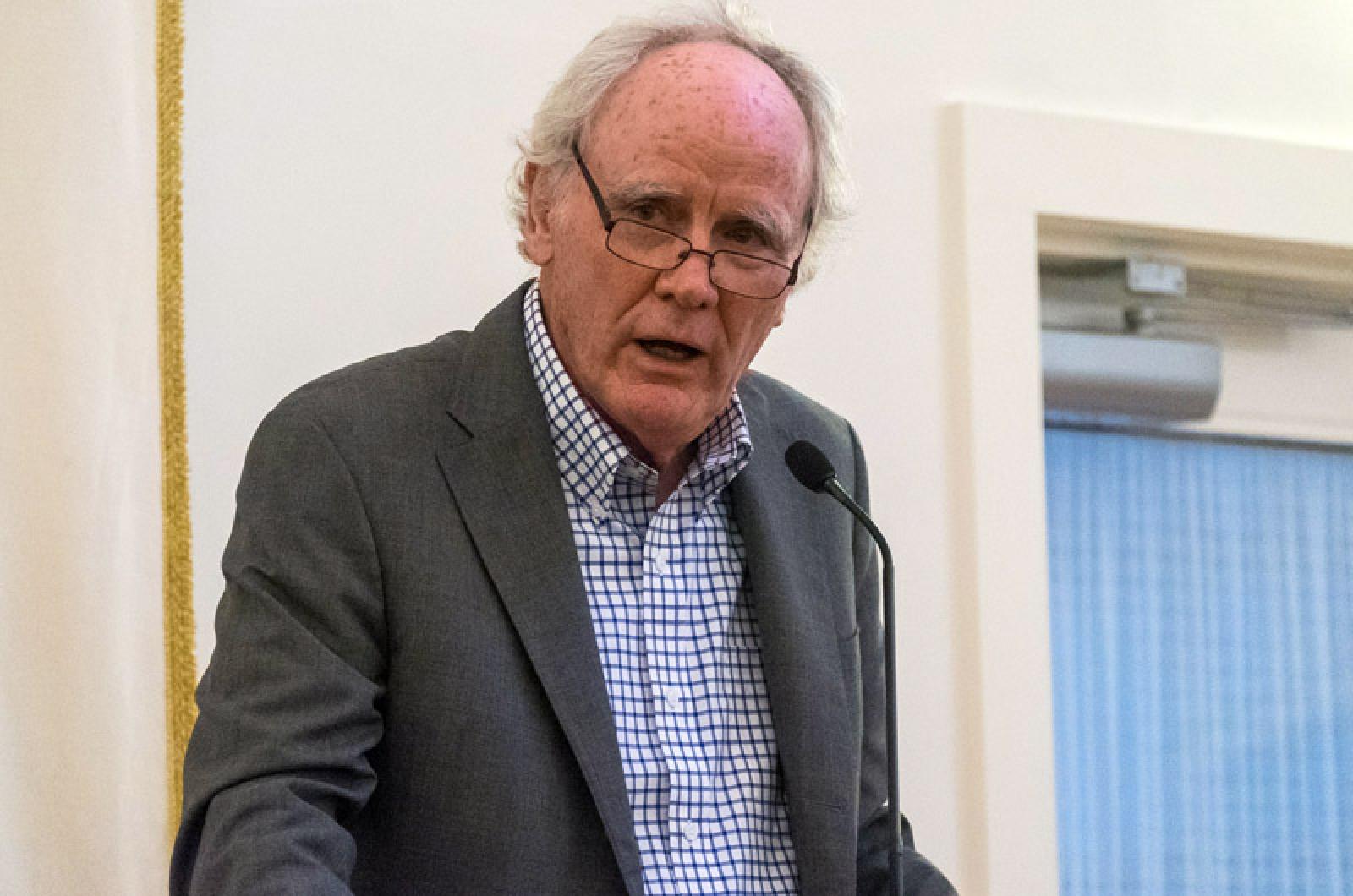Love thy neighbor. Author James Carroll’s message sounded simple enough on Thursday night at the Martha’s Vineyard Hebrew Center. He opened the Summer Institute’s annual speaker series with this message as part of a powerful lecture defending the role of religion in an increasingly secular and violent world.
Mr. Carroll dedicated his lecture to the late Elie Wiesel, the Nobel Laureate Holocaust survivor who died this past week.
“No one can speak for the dead. No one may interpret their mutilated dreams and visions. And yet I sense their presence, I always do,” said Mr. Carroll, quoting Elie Wiesel’s Nobel Peace Prize acceptance speech before beginning his lecture.
Mr. Carroll, a former Catholic priest who served as Boston University’s Catholic Chaplain from 1969 to 1974, discussed religion’s evolving role throughout world conflicts of the 19th and 20th centuries. He drew upon the assassination of Abraham Lincoln, both World Wars and the current conflicts in the Middle East as examples.
“Those who want to fault religion as a primal source of violence must reckon with World War I’s profound secularity,” he said. “Those who want to exonerate religion must confront the subliminal religious crimes that did indeed broaden that savage violence.”
Mr. Carroll denounced the idea that eliminating religion eradicates the violence created by extremists groups such as ISIS. The misinterpretation of religious texts inadequately describes the message of a higher being he said. Honoring one’s neighbor and tolerating their different cultures is the key to solving this problem he stressed.
A recipient of the 2012 Scripps Howard National Journalism Award for his columns in The Boston Globe, Mr. Carroll touched upon theological questions such as mankind’s obsession with science and the idea of “God” as an answer to death’s mystery. At a Q&A session after the talk the audience raised questions ranging from how governments must best confront nations using ideological reasoning for war, to how one must tolerate the differences of other religious groups.
“I think it was a really brilliant and transcending lecture that put into words some of the most important questions that we face and gave us ways to think of these questions in a really deep way,” said Hebrew Center rabbi Caryn Broitman.
The rabbi began the evening by offering a warm shalom to Mr. Carroll. She referred to him as a “great light” of a generation while applauding his success as both a historian and journalist.
The Summer Institute continues next Thursday, July 14, with guest speaker E.J. Dionne. Mr. Dionne is a long time op-ed columnist for The Washington Post and frequent commentator on politics for National Public Radio, This Week and Meet the Press. For a full list of summer institute speakers, visit mvsummerinstitute.com.






Comments
Comment policy »